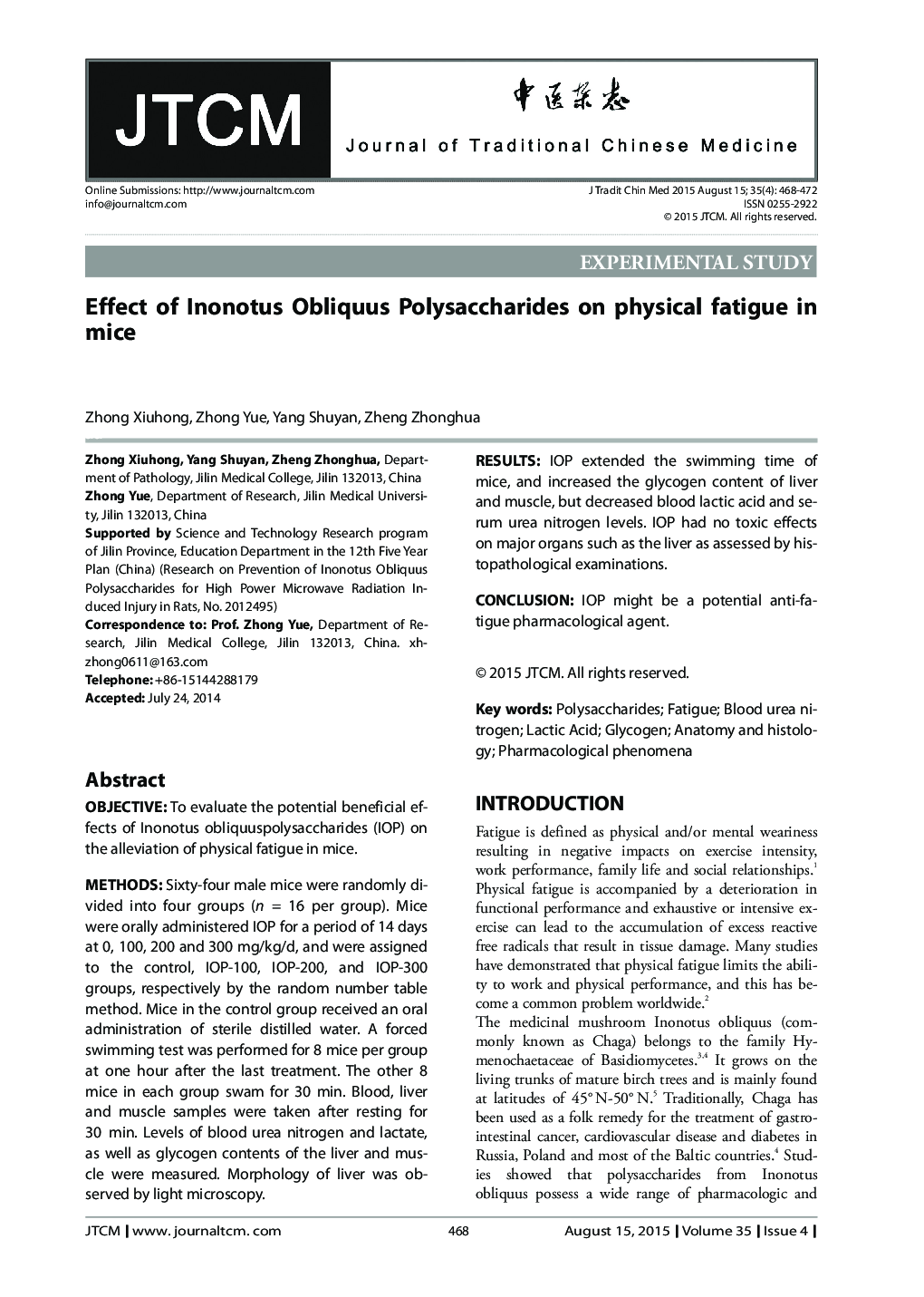| Article ID | Journal | Published Year | Pages | File Type |
|---|---|---|---|---|
| 4201050 | Journal of Traditional Chinese Medicine | 2015 | 5 Pages |
ObjectiveTo evaluate the potential beneficial effects of Inonotus obliquuspolysaccharides (IOP) on the alleviation of physical fatigue in mice.MethodsSixty-four male mice were randomly divided into four groups (n = 16 per group). Mice were orally administered IOP for a period of 14 days at 0, 100, 200 and 300 mg/kg/d, and were assigned to the control, IOP-100, IOP-200, and IOP-300 groups, respectively by the random number table method. Mice in the control group received an oral administration of sterile distilled water. A forced swimming test was performed for 8 mice per group at one hour after the last treatment. The other 8 mice in each group swam for 30 min. Blood, liver and muscle samples were taken after resting for 30 min. Levels of blood urea nitrogen and lactate, as well as glycogen contents of the liver and muscle were measured. Morphology of liver was observed by light microscopy.ResultsIOP extended the swimming time of mice, and increased the glycogen content of liver and muscle, but decreased blood lactic acid and serum urea nitrogen levels. IOP had no toxic effects on major organs such as the liver as assessed by histopathological examinations.ConclusionIOP might be a potential anti-fatigue pharmacological agent.
